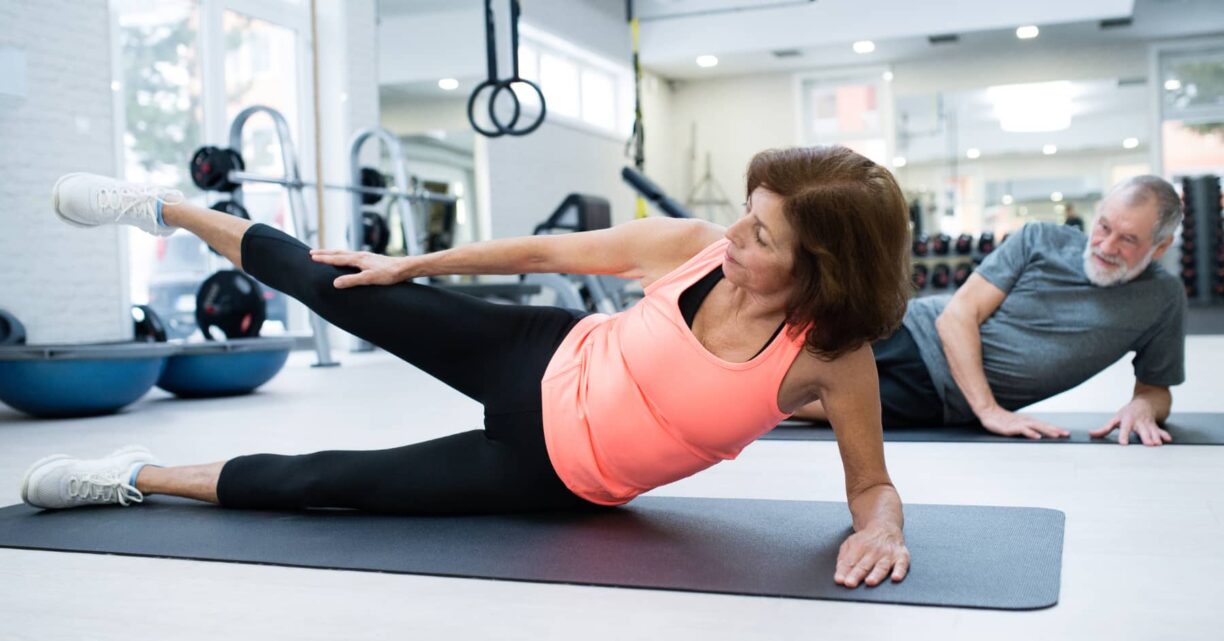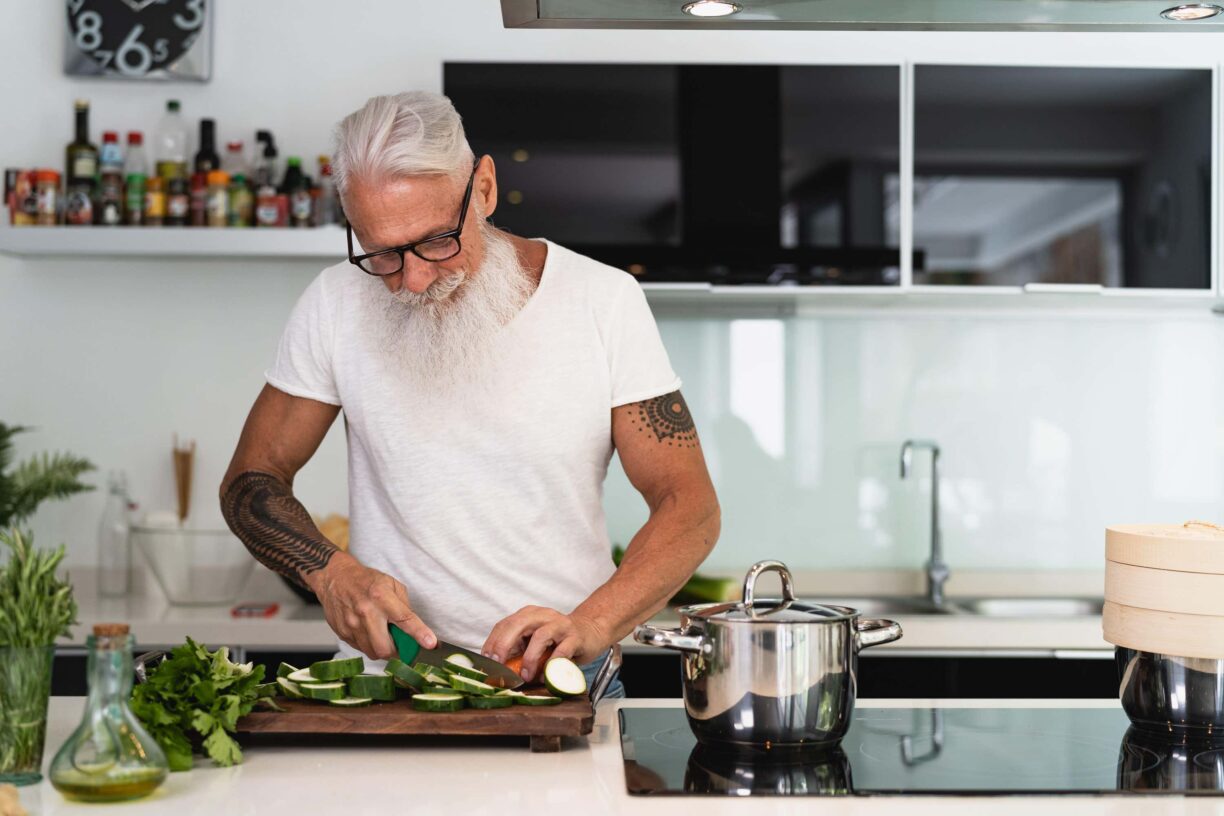As we grow older, prioritising fitness and well-being becomes essential for maintaining health and vitality.
Regular physical activity, balanced nutrition, and social connections are key elements that enhance the quality of life for seniors.
This article covers practical strategies for maintaining fitness and well-being during your senior years, helping you take control of your health.

From establishing routines to seeking professional assistance, each aspect contributes to a comprehensive approach to ageing.
Establishing a Routine
BLS states that adults aged 75 and over spent an average of 7.6 hours daily engaged in leisure and sports activities.
Out of all the age categories, this is the highest. They spent 46 minutes reading for personal interest, contrasting sharply with 15-19-year-olds, who averaged just 8 minutes. Understanding these habits can inform tailored activities to enhance their quality of life.
A structured schedule provides stability and encourages healthy habits, making it easier to incorporate physical activity and nutritious meals into daily life. Start by setting specific times for exercise, meal preparation, and relaxation.
This method nurtures a feeling of purpose and achievement. Building flexibility into your routine enables modifications based on energy levels and individual needs.
It’s also important to emphasize rest and recovery to maintain overall health. With a comprehensive routine in place, seniors can support not only their physical health but also their mental and emotional wellness.
How can I tell if my routine meets my health requirements?
To determine if your routine is balanced, take into account your emotional, physical, and social well-being.
Ensure you’re incorporating a mix of physical activity, rest, nutrition, and social engagement. Regularly assess how you feel; if you’re experiencing fatigue or stress, adjustments may be necessary.
Discussing your routine with healthcare providers can help tailor it to your specific health requirements.
Engaging in Regular Physical Activity
The National Council on Ageing emphasizes that regular physical activity is essential for seniors to maintain independence and lower age-related health risks.
The Physical Activity Guidelines advise engaging in 150 minutes of moderate aerobic exercise or 75 minutes of vigorous activity each week.
Additionally, individuals should incorporate strength training sessions twice a week. However, only 23.1% of adults aged 65 and older met these recommended activity levels.
Participating in a combination of cardiovascular activities, flexibility exercises and strength training is essential for preserving balance, mobility, and overall wellness.
Strive for moderate-intensity aerobic activities weekly, like dancing, swimming, or walking.
Including strength training twice a week can enhance muscle mass and bone density, which helps lower the risk of falls and injuries.
Gentle activities like yoga or tai chi promote flexibility and mindfulness, benefiting both the body and mind. Finding enjoyable activities increases motivation and adherence to an exercise routine.
Nutrition and Healthy Eating

Healthline Media emphasizes the importance of nutrition for overall well-being, particularly in older adults.
The typical adult in the U.S. should strive for approximately 50 grams of dietary protein each day.
For men, this typically ranges from 34 to 56 grams, while for women, it’s 34 to 46 grams. Ensuring adequate protein intake supports muscle strength, immune function, and overall well-being as one age.
Emphasizing a diet rich in vegetables, fruits, whole grains, lean meat, and healthy fats is essential.
These food groups supply vital nutrients that help maintain energy, boost immune health, and support cognitive function.
Staying hydrated is equally important; seniors should aim for adequate fluid intake to prevent dehydration, which can lead to serious health issues.
Portion control and mindful eating can help manage weight and prevent chronic diseases.
Seeking advice from a registered dietitian can provide tailored recommendations based on your individual dietary requirements and tastes.
How can I make sure I’m consuming adequate protein in my meals?
To ensure sufficient protein intake, add a range of protein-rich foods to your meals. Include options like lean meats, dairy products, eggs, fish, legumes, nuts, and seeds.
Aim to incorporate protein sources into every meal and snack. If needed, consider protein supplements or shakes, especially if you have dietary restrictions or difficulty eating enough food. Consulting a dietitian can provide personalized guidance.
Considering Professional Help
Hiring a home care nurse practitioner can significantly improve your health and well-being. These experts provide personalized care, manage chronic conditions, coordinate medications, and monitor health regularly.
When choosing a nurse practitioner, assess their experience, specialities, and patient care philosophy to ensure compatibility.
Most hold a Master’s degree in nursing, often obtained through flexible online NP degree programs.
These advanced qualifications enable them to provide comprehensive care, often blending traditional treatments with personalized approaches tailored to individual needs.
By selecting a qualified nurse practitioner, seniors gain tailored support that encourages independence and enhances overall wellness.
Spring Arbor University states online learning, also known as distance learning, involves instruction via computer technology and the Internet.
These courses are asynchronous, allowing students to work anytime during the semester.
Social Engagement and Mental Health
Maintaining connections with friends and family, participating in community activities, and joining clubs can combat feelings of isolation and loneliness.
Participating in meaningful social activities elevates mood, alleviates stress, and improves cognitive abilities.
Involvement in activities such as volunteering or joining community events creates chances for connection and a sense of purpose.
Additionally, technology enables virtual communication, helping seniors stay in touch with family and friends no matter the distance.
Prioritising social engagement fosters a supportive environment that contributes to mental wellness and resilience.
How does isolation affect seniors, and what can be done about it?
Isolation significantly impacts seniors, increasing their risk of heart disease by 29%, stroke by 32%, and dementia by 50%.
Programs like NYSOFA offer services such as home-delivered meals, companion pets, and online classes to foster connections.
Recent initiatives, including the ElliQ AI companion, have achieved a remarkable 95% reduction in loneliness among users, demonstrating effective solutions.
Prioritising Preventive Health Measures
Regular health screenings, vaccinations, and check-ups help identify potential health issues early, allowing for timely intervention. Staying informed about personal health conditions and managing them effectively is vital.
Adopting healthy lifestyle habits, including nutritious eating, consistent physical activity, and mental wellness techniques, significantly improves health outcomes.
It’s crucial to have open conversations with healthcare professionals about personalised preventive strategies.
According to Springer Nature Limited, there is a strong link between the use of senior centres and participation in health screenings among older adults.
Studies indicate that seniors who visit these centres are more inclined to take part in health check-ups. Increased frequency of visits to senior centres correlates with greater participation in health screenings.
This underscores the importance of social engagement in enhancing preventive health measures among older adults.
A Holistic Approach to Wellbeing
By establishing routines, engaging in regular physical activity, and prioritizing nutritious eating, seniors can improve their overall quality of life.
Seeking professional help, fostering social connections, and emphasizing preventive health measures are equally important.
These practical strategies create a supportive environment that promotes physical, mental, and emotional health.
Embracing these methods allows seniors to experience their golden years with vitality, strength, and joy, fostering a healthier and more fulfilling lifestyle.





